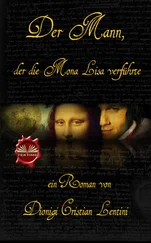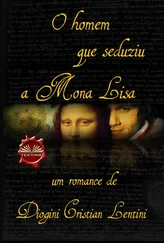“Violence,” he said.
“If they have no choice but to let Savonarola be ruined-if they murder him or arrange for him to die-then they’ll have no use for my father. For Antonio…”
His expression softened; he felt sorry for me. But I could see, too, his reserve.
“What can I do?” I believed wholeheartedly in my mother’s prophecy that death was coming for the prophet. “The longer I stay, the more dangerous it is for my father. You must help us. Take us out of Florence. Take us with you to Milan.”
“Lisa…” I heard pity in his tone. “If I could have, I would have done so long ago. But it is not so easy. There are you, and your father, and your child… and your slave, I assume. Four people. And you realize, of course, that your comings and goings are watched. That is why I have stayed here, at Santissima Annunziata, because you can come here regularly without arousing suspicion. But you will never make it past the city gates so long as your husband retains any influence.”
“So I am to stay,” I asked bitterly, “until it is too late, and my father dies?”
My words hurt him, but his voice remained gentle. “Your father is not a helpless man. He has survived this long. And the time will come soon enough for you to leave. I promise you that. It will come.”
“It will never come soon enough,” I said.
I wish now I had been wrong.
F lorence became hungry for Savonarola’s proffered miracle, and thus came about the event known as the Trial by Fire. During Fra Girolamo’s silence, Fra Domenico had replaced him in San Marco’s pulpit. He was not as popular as his master, being stubborn and somewhat dim-witted-but he was extraordinarily tenacious and fanatically devoted to Savonarola. He doggedly maintained that each word that fell from Fra Girolamo’s lips had been placed there by God.
Others had begun to preach as well-including an outspoken Franciscan at Santa Croce, Fra Francesco da Puglia, who offered a bold challenge:
“I will walk through the fire with any man who wishes to prove that Savonarola is a prophet who speaks God’s truth. For I believe Fra Girolamo to be a liar and a heretic-and that anyone who walks through the fire believing otherwise will die. I would not expect to survive, myself… but certainly, anyone who walked successfully through the flames, believing and trusting in Fra Girolamo, could then be assured he speaks the truth.”
Domenico learned of the challenge. And one Sunday he announced, from his lectern in San Marco, that he intended to enter the fire. His vehement proclamation so moved his congregation that each man and woman enthusiastically offered to enter the fire with him.
A wild enthusiasm swept the city. For once, both the Arrabbiati and the piagnoni were in agreement: Savonarola should take the challenge and prove beyond question whether he was or was not anointed by God.
Both parties presented the suggestion to the Signoria, who approved the event at once, and announced that a stage would be constructed in the Piazza della Signoria, and the spectacle would be held on a Saturday, the seventh of April, at the hour past midday. Everyone was eager to see the contest take place. As the respected Arrabbiato Leonardo Strozzi put it: “We require speedy clarification as to Savonarola’s inspiration: God, or the Devil.”
Everyone was eager but Savonarola. He regretted the fact, he said, that his followers were eager to indulge in a test which might result in another’s death; surely they already had ample proof of his inspiration and should need no more. He publicly rebuked Domenico for putting him in a position “that might prove dangerous to others.” He tried-and failed-to convince the piagnoni that the trial was a useless, prideful display.
But he could not stop it. “If my master will not enter the flames,” said Domenico, cleverly, “then I will enter them myself and prove he is God’s chosen one.”
And so, on Saturday, the seventh of April, at ten o’clock in the morning, my husband and I rode in our carriage to the Palazzo della Signoria. Extraordinary precautions had been taken: Foreigners had been expelled and all of the city gates had been locked. Florence was patrolled by small neighborhood armies, and her streets filled with piagnoni making their way on foot to the square. All but three approaches to the piazza had been blocked, and those three were guarded by the Signoria’s own soldiers.
Women were not permitted to view the spectacle-at least, those women without powerful husbands and a carriage. My husband was now one of the most influential men in Florence: He had finally been elected Lord Prior for the current session. We had thrown a party to celebrate the event-quite a lavish one, though none of his piagnoni associates seemed to mind.
Francesco took great pride in wearing the long scarlet tunic of the prior, and this morning was no exception. The instant the guards saw the tunic, they bowed. Francesco greeted the guards with a courteous, condescending gesture, and we were waved on. Half the time, my husband graced me with his benign, calm smile; half the time, he was silent and frowning. I believe he nursed hope that somehow circumstances would resolve themselves in Savonarola’s favor.
Our destination was the palazzo, where Francesco excused himself to join the other Lord Priors, who sat in the ringhiera , a railed, covered patio in front of the palazzo which gave the best view of the square. I sat a short distance away, in a discreet little loggia outfitted with comfortable chairs for wives of government officials, of which there were four. My companion was Violetta, the golden-haired wife of Francesco Valori, he who had rabidly called for the head of Bernardo del Nero. It was a cool morning, but Violetta had brought a fan and waved it nervously, as she spoke of the miracle that was surely coming. How wonderful, she said, to see the Arrabbiati silenced at last.
I occupied myself with the surroundings. The Lord Priors, including Gonfaloniere Valori and my husband, sat next to the massive stone lion, the regal Marzocco sculpted by Donatello. Near the lion rested one end of a long wooden platform. Raised high off the ground, it was not quite wide enough for two men to walk along it side by side. Beneath it was a trench filled with limbs and brush; atop these lay neat stacks of unbaked bricks, to prevent the platform from being consumed by the fire. This contraption spanned a respectable distance, from one end of the piazza almost to the other.
The atmosphere was rather like Carnival. The weather was bright, cloudless, and exhilarating. Those pedestrians who had entered the piazza early were jubilant. The piagnoni indicated their loyalties by carrying little red crosses and singing hymns; the Arrabbiati and the uncommitted sang bawdy songs and called out jokes to one another. Though Savonarola had called on the faithful to fast, servants emerged from the palazzo and offered us ladies bread and cheese and wine, as if we were at a joust.
At last two men appeared with jugs and began heavily dousing the wood and brush with oil. Other men appeared bearing torches and set the trenches ablaze; the crowd cheered. Dark smoke billowed heavenward. For about an hour, the people remained cheered and excited as the fire caught hold and grew-but then the excitement faded to restlessness.
After another hour, our boredom was eased by the appearance of the Franciscans: They arrived together, gray-robed and disorderly, a scattered flock of pigeons. Their spokesman went at once to the priors in the ringhiera , and they all huddled together, conferring. In the meantime, the rest of the Franciscans took their place in a loggia adjacent to ours.
Читать дальше
Конец ознакомительного отрывка
Купить книгу












